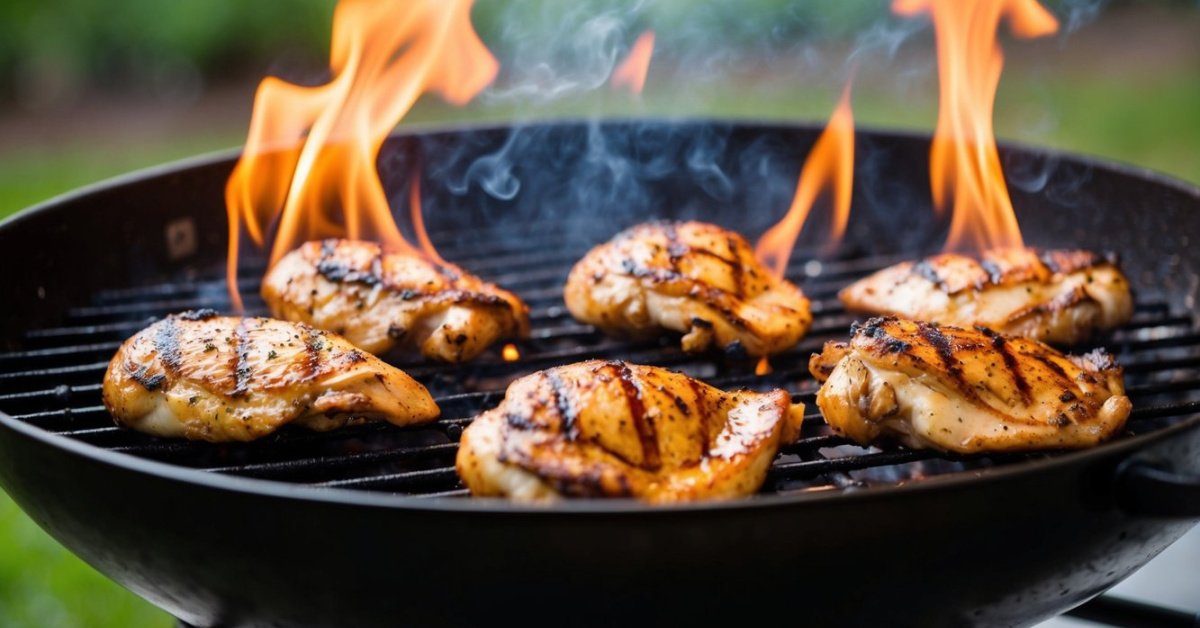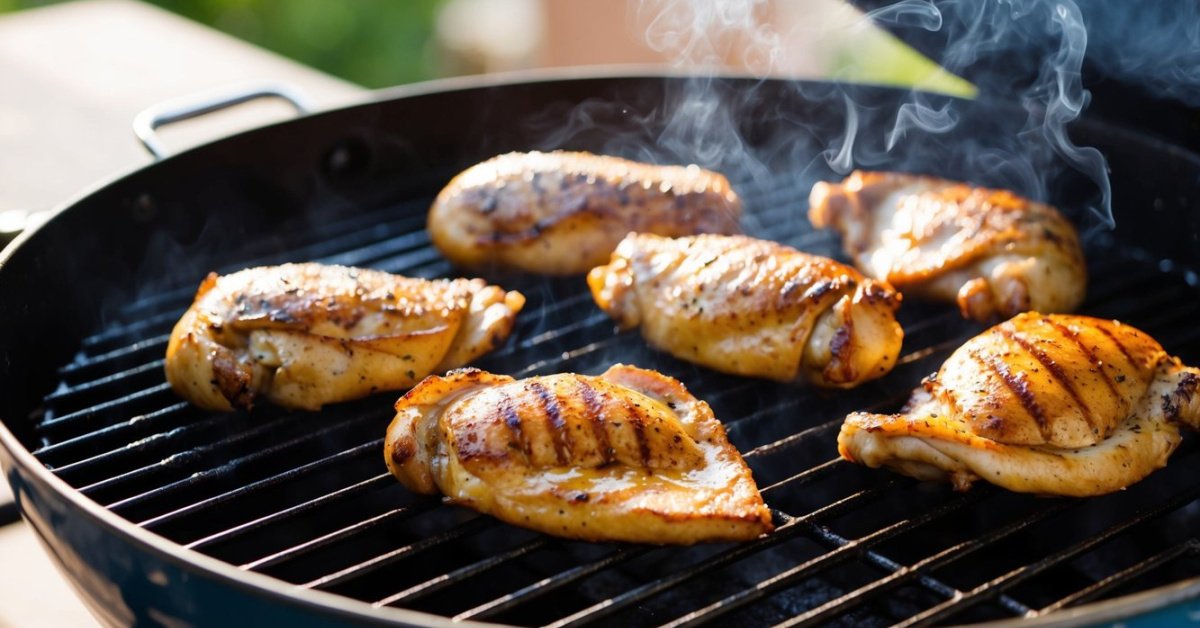When it comes to barbecues and grilling, the perfect sauce can elevate a simple meal to a mouth-watering feast. Barbecue sauce, with its rich, tangy and slightly sweet flavor, has become a staple in many households. But as with any food product, BBQ sauce lovers often wonder about its shelf life and whether it can go bad.

Store-bought BBQ sauce is typically shelf-stable, with unopened bottles lasting 1 to 2 years from their manufacturing date. However, once opened, the sauce’s shelf life decreases to around 6 to 9 months. While the sauce contains natural preservatives like lemon juice, sugar, and vinegar, these ingredients cannot indefinitely prevent spoilage.
To maximize the shelf life and freshness of your BBQ sauce, it’s crucial to store it correctly. After opening, it’s recommended to refrigerate the sauce to maintain its quality and flavor. Additionally, always check for signs of spoilage, such as unpleasant odors, mold, or changes in texture, before using the sauce to ensure that it will not potentially ruin your meal or cause stomach issues.
Does Barbecue Sauce Go Bad?
Shelf Life
BBQ sauce does eventually lose its flavor and freshness, leading to spoilage. Store-bought BBQ sauce is usually shelf-stable, and as long as it remains unopened, it can be stored at room temperature. Once opened, it can be kept in the pantry for a short time, but refrigeration is crucial for preserving its freshness. Homemade BBQ sauce, on the other hand, spoils faster than store-bought sauce, due to the absence of added preservatives.
- Unopened store-bought BBQ sauce: 12-18 months (at room temperature)
- Opened store-bought BBQ sauce: 4-6 months (refrigerated)
- Homemade BBQ sauce: 1-2 weeks (refrigerated)
Signs of Spoilage
Detecting when BBQ sauce has gone bad can be determined through the following signs:
- Expiry date: Look for the expiry date on the store-bought BBQ sauce bottle. If it has passed, it may be best to discard it.
- Unpleasant smell: Upon opening the jar, if the odor is off or unpleasant, the sauce might be spoiled.
- Mold or fungus: If you see any mold or fungus inside the BBQ sauce, it is no longer safe for consumption.
Factors Affecting Spoilage
Several factors contribute to the spoilage of BBQ sauce:
- Storage conditions: Ensure the sauce is stored in a cool, dry place (room temperature for unopened, refrigerator for opened) to prevent early spoilage.
- Exposure to air: Once opened, minimizing exposure to air by sealing the container tightly can help prolong its shelf life.
- Contamination: Avoid introducing contaminants (e.g., food particles, bacteria) into the sauce by using clean utensils when serving.
Storing Unopened Barbecue Sauce
Unopened barbecue sauce has a particular shelf life, depending on its storage conditions. Generally, it is considered safe to consume for about 12 to 18 months when stored properly. To ensure optimal storage, follow these guidelines:
- Location: Choose a cool, dry area for storing your unopened barbecue sauce. Room temperature works perfectly for store-bought sauce, as it is usually shelf-stable.
- Handling: Ensure that the sauce’s packaging is intact and has not been tampered with. This helps in preserving the quality and freshness of the sauce.
In summary, store unopened barbecue sauce away from direct sunlight or heat sources, and maintain a stable room temperature to maximize its shelf life. Following these storage tips helps you enjoy the best quality and flavor of your barbecue sauce for a longer period.
Storing Opened Barbecue Sauce
Proper storage of opened barbecue sauce is essential to maintain its flavor and freshness, as well as to prevent bacterial growth and spoilage. Once opened, it is advisable to store the barbecue sauce in the refrigerator. This not only keeps the sauce more fresh compared to pantry storage but also extends the shelf life significantly.
Ideally, opened barbecue sauce should be kept in an airtight container, preventing any contaminants or mold from coming into contact with the sauce. If the original bottle or packaging does not provide an airtight seal, consider transferring the sauce to another container with a tight-fitting lid.
It is essential to always close the cap tightly after each use to minimize exposure to oxygen and airborne particles. Oxygen can change the flavor and color of barbecue sauce over time, while contaminants and mold might make the sauce unsafe for consumption.
In terms of shelf life, opened barbecue sauce should be consumed within six months when stored in the refrigerator. This assumes that the bottle or container has been kept sealed between uses, and the sauce has not been exposed to warmth or sunlight. Keep in mind the expiration date indicated on the bottle, as the sauce may not last for the full six months if it’s close to this date.
Remember that homemade barbecue sauces typically have a shorter shelf life due to the lack of pasteurization or preservatives. Homemade sauces should be stored in the fridge and consumed within one to two weeks.
Here is a summary of the storing instructions for opened barbecue sauce:
- Store in the refrigerator
- Use an airtight container if the original packaging is not sealing well
- Keep the cap tightly closed after each use
- Consume within six months, or check the expiration date on the bottle
Barbecue Sauce Ingredients and Their Effects on Shelf Life
Barbecue sauce is a popular condiment used to enhance the flavor of various dishes, such as grilled meats, sandwiches, and pizza. Understanding the ingredients in barbecue sauce and their effects on shelf life can help you store it properly and determine when it has gone bad.
The primary ingredients found in most barbecue sauces include:
- Tomato paste or ketchup
- Vinegar
- Sugar or other sweeteners
- Spices and herbs
Each of these ingredients can contribute differently to the shelf life of barbecue sauce.
Tomato paste or ketchup: As a base ingredient, tomato paste adds thickness and flavor to the sauce. Its high acid content contributes to the preservation of the sauce, inhibiting the growth of bacteria and other microorganisms that can cause spoilage.
Vinegar: Vinegar is another key ingredient in barbecue sauce. Its acidic nature works as a natural preservative that helps extend the sauce’s shelf life. Additionally, the vinegar can aid in preserving the color, flavor, and texture of the sauce over time.

« Where to Store Grilling Tools
How to Get Barbecue Sauce Out of Clothes: Proven Tips and Tricks »
Sugar or other sweeteners: Sugar acts as a preservative by absorbing water in the sauce and reducing the moisture content, which can help inhibit the growth of spoilage-causing bacteria. Alternative sweeteners, such as honey or molasses, can provide similar preservative effects.
Spices and herbs: The various spices and herbs used in barbecue sauces, such as garlic, onion, and paprika, not only add flavor but also contribute to the preservation of the sauce. Some spices have antimicrobial properties, which can help slow down the spoilage process.
The combination of these ingredients typically results in a barbecue sauce with a shelf life of 1 to 2 years when unopened. Once opened, the sauce can last 6 to 9 months if stored properly. Keep in mind that these are general guidelines, and it is essential to check the specific expiration date on your barbecue sauce bottles to ensure their quality. Proper storage is crucial for extending the shelf life of barbecue sauce: keep it in a cool, dry place away from direct sunlight, and always use a clean utensil to avoid introducing contaminants into the sauce.











